Water in your engine oil can be a serious problem that can lead to costly repairs if not addressed promptly.
The presence of water in your engine oil can cause significant damage to your engine, leading to decreased performance, increased wear and tear, and even engine failure if left untreated.
Understanding the risks and solutions associated with water in engine oil is critical for maintaining the health and longevity of your vehicle.
There are several potential causes of water in engine oil, including a blown head gasket, a cracked engine block, or a damaged cylinder head.
In some cases, water can also enter the oil through the air intake system or the exhaust system.
Regardless of the cause, the presence of water in your engine oil can have serious consequences, including corrosion, oil sludge buildup, and reduced lubrication.
Fortunately, there are several solutions available for addressing water in engine oil, including replacing damaged components, repairing leaks, and using specialized additives designed to remove water from the oil.
By understanding the risks associated with water in engine oil and taking appropriate action to address the issue, you can help ensure the long-term health and performance of your vehicle.
Causes of Water in Engine Oil
Water in engine oil can cause significant damage to your engine and reduce its lifespan.
Understanding the causes of water in engine oil can help you identify and prevent potential issues.
Here are some common causes of water in engine oil:
Coolant Leaks
One of the most common causes of water in engine oil is a coolant leak.
Coolant is a mixture of water and antifreeze that helps regulate the temperature of your engine.
If there is a leak in the cooling system, coolant can mix with engine oil and cause damage.
Some signs of a coolant leak include a sweet smell coming from the engine, low coolant levels, and overheating.
Condensation
Condensation can also cause water to mix with engine oil.
This occurs when moisture in the air comes into contact with the cold metal surfaces inside the engine.
Over time, this moisture can accumulate and mix with engine oil.
This is more common in engines that are not used frequently or are only used for short trips.
To prevent condensation, it is important to warm up your engine before driving and to change the oil regularly.
Damaged Components
Damaged components such as a cracked cylinder head or a damaged head gasket can also cause water to mix with engine oil.
This occurs when coolant leaks into the engine and mixes with oil. It can also occur when oil leaks into the coolant system.
If you notice any signs of engine damage such as smoke coming from the engine or a decrease in power, it is important to have your engine inspected by a professional.
In conclusion, understanding the causes of water in engine oil can help you prevent potential issues and keep your engine running smoothly.
Regular maintenance and inspections can help identify and prevent problems before they cause significant damage.
Consequences of Water Contamination
When water gets into your engine oil, it can cause a variety of problems that can lead to costly repairs and even engine failure.
Here are some of the consequences of water contamination:
Engine Corrosion
Water in engine oil can cause corrosion of the engine’s metal components, such as bearings, pistons, and cylinder walls.
Corrosion can lead to metal fatigue, which can cause parts to fail and the engine to seize.
This can result in expensive repairs or even the need for a new engine.
Lubrication Failure
Water in engine oil can also cause lubrication failure, which can lead to increased friction between moving parts.
This can cause excessive wear and tear on the engine, leading to premature failure.
In addition, water can wash away the protective film of oil that coats the engine’s metal components, leaving them vulnerable to damage.
Overheating
Water in engine oil can also cause the engine to overheat.
This is because water has a lower boiling point than oil, so when the engine gets hot, the water can turn to steam and create pockets of air in the oil.
This can reduce the oil’s ability to lubricate the engine, leading to increased friction and heat.
Overheating can cause serious damage to the engine, including warped cylinder heads and blown head gaskets.
In summary, water contamination in engine oil can cause serious damage to your engine.
It is important to address the issue as soon as possible to prevent costly repairs and engine failure.
Is Water in Engine Oil a Common Issue and How Can It Be Fixed?
Water in engine oil isn’t a common issue but occurs when there’s a head gasket leak or condensation. Fixing it requires detecting and repairing leaks or changing the oil. Interestingly, unrelated to car maintenance, a driver’s license number change postmarriage is often a simple bureaucratic process to update personal details.
Detection and Diagnosis
Detecting water in engine oil is crucial to prevent engine damage and maintain the efficiency of your vehicle.
Here are some methods to detect and diagnose water in engine oil:
Visual Inspection
A visual inspection of the engine oil can reveal the presence of water.
Water in engine oil appears as milky or foamy oil on the dipstick or oil cap.
If you notice any of these signs, it is crucial to take immediate action to prevent further damage to the engine.
Oil Analysis
Oil analysis is a more accurate method to detect water in engine oil.
The oil sample is sent to a lab for analysis, where the presence of water can be identified.
This method is reliable and can detect other contaminants in the oil as well.
Performance Symptoms
Water in engine oil can cause several performance symptoms, such as decreased engine power, rough idling, and increased oil consumption.
If you notice any of these symptoms, it is essential to have your vehicle inspected by a professional mechanic.
In conclusion, detecting and diagnosing water in engine oil is crucial to prevent engine damage and maintain the efficiency of your vehicle.
Visual inspection, oil analysis, and performance symptoms are some of the methods to detect and diagnose water in engine oil.
It is essential to take immediate action if you suspect water in your engine oil to prevent further damage to your engine.
Preventive Measures
To prevent water from entering your engine oil, there are several measures you can take.
These measures include regular maintenance, proper storage, and engine design modifications.
Regular Maintenance
Regular maintenance is crucial in preventing water from entering your engine oil.
This includes changing the oil and oil filter at recommended intervals, checking for leaks and fixing them promptly, and inspecting the cooling system for any signs of damage or corrosion.
Regular maintenance also ensures that your engine is running smoothly and efficiently, which reduces the risk of water contamination.
Proper Storage
Proper storage of your vehicle is also essential in preventing water from entering your engine oil.
If your vehicle will be sitting for an extended period, it is recommended to store it in a dry, covered area.
You should also start the engine periodically and let it run for a few minutes to circulate the oil and prevent water from accumulating.
Engine Design Modifications
Modifying your engine design can also help prevent water from entering your engine oil.
For example, installing a crankcase ventilation system can reduce the buildup of moisture in the engine, while upgrading the gaskets and seals can prevent leaks and water contamination.
By taking these preventive measures, you can reduce the risk of water contamination in your engine oil and ensure that your engine runs smoothly and efficiently.
Solutions and Treatments
If you have discovered water in your engine oil, don’t panic.
There are several solutions and treatments that can help you resolve the issue. Here are some of the most common ones:
Oil Change
The simplest solution to water in engine oil is to change the oil. This will remove the contaminated oil and replace it with fresh oil.
However, it is important to note that simply changing the oil may not always solve the problem.
If the water has caused damage to the engine, you may need to take additional steps.
Repair and Replacement
If the water has caused damage to the engine, you may need to repair or replace certain parts.
This can include replacing gaskets or seals, repairing cracks in the engine block, or replacing damaged bearings.
It is important to have a professional mechanic diagnose the issue and determine the best course of action.
Chemical Additives
There are chemical additives available that can help remove water from engine oil.
These additives work by breaking down the water molecules and allowing them to mix with the oil.
However, it is important to use caution when using chemical additives, as they can sometimes cause more harm than good.
Always follow the manufacturer’s instructions and use only recommended products.
No matter which solution or treatment you choose, it is important to address the issue as soon as possible.
Ignoring the problem can lead to further damage to your engine and potentially costly repairs.
Always consult with a professional mechanic if you are unsure of the best course of action.
As an Amazon Associate we earn from qualifying purchases.









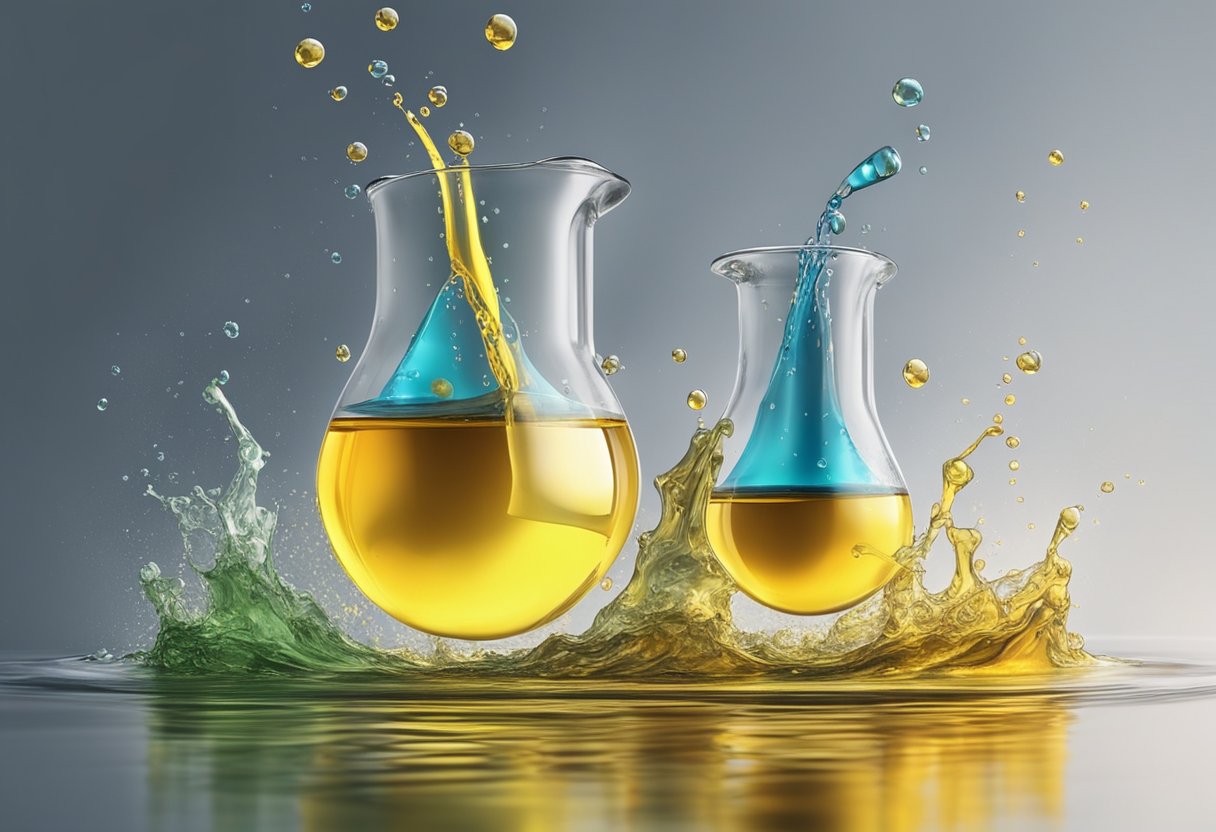
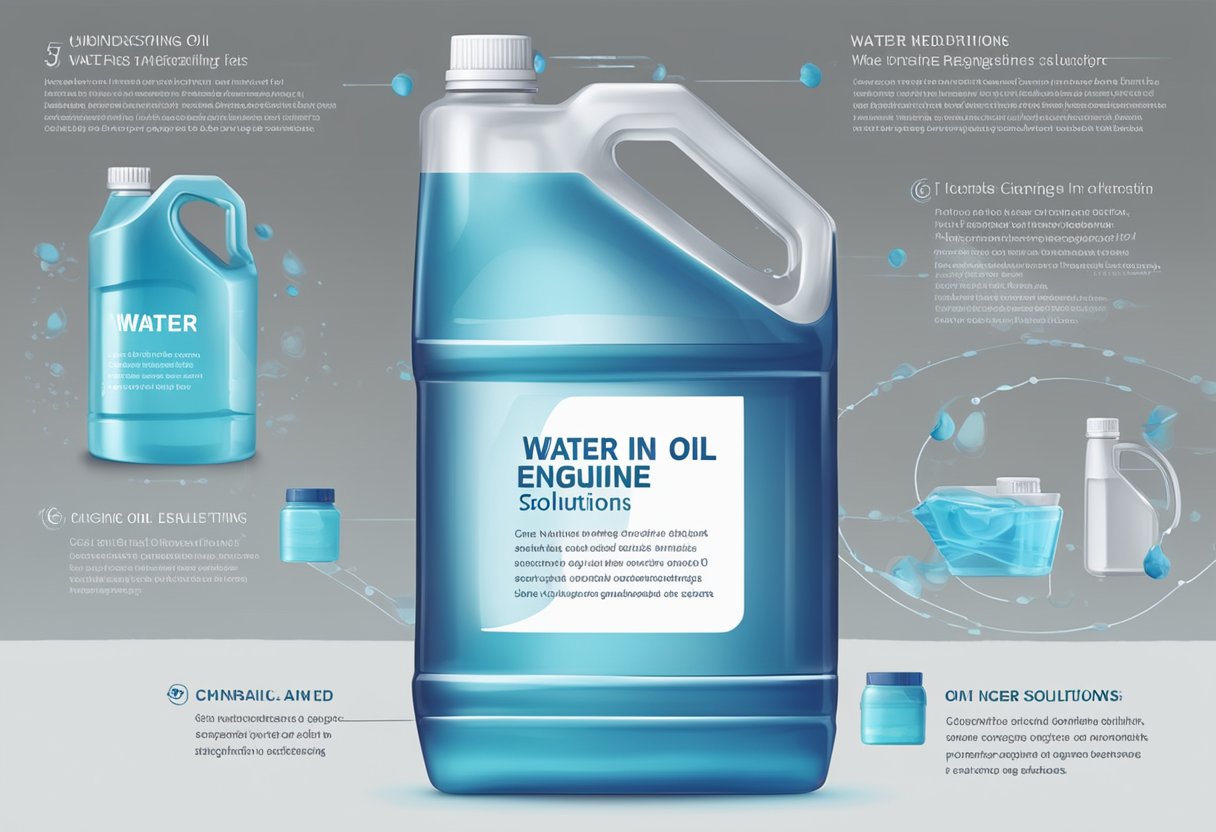
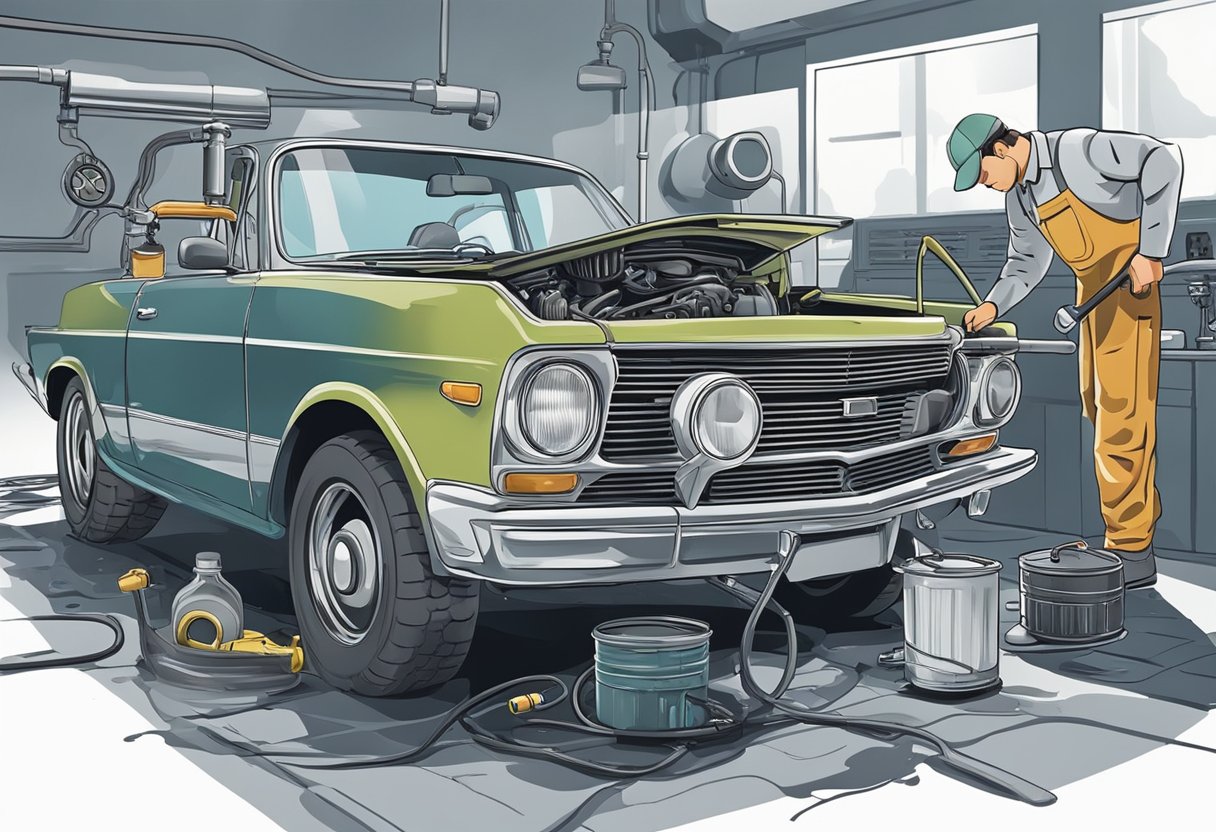
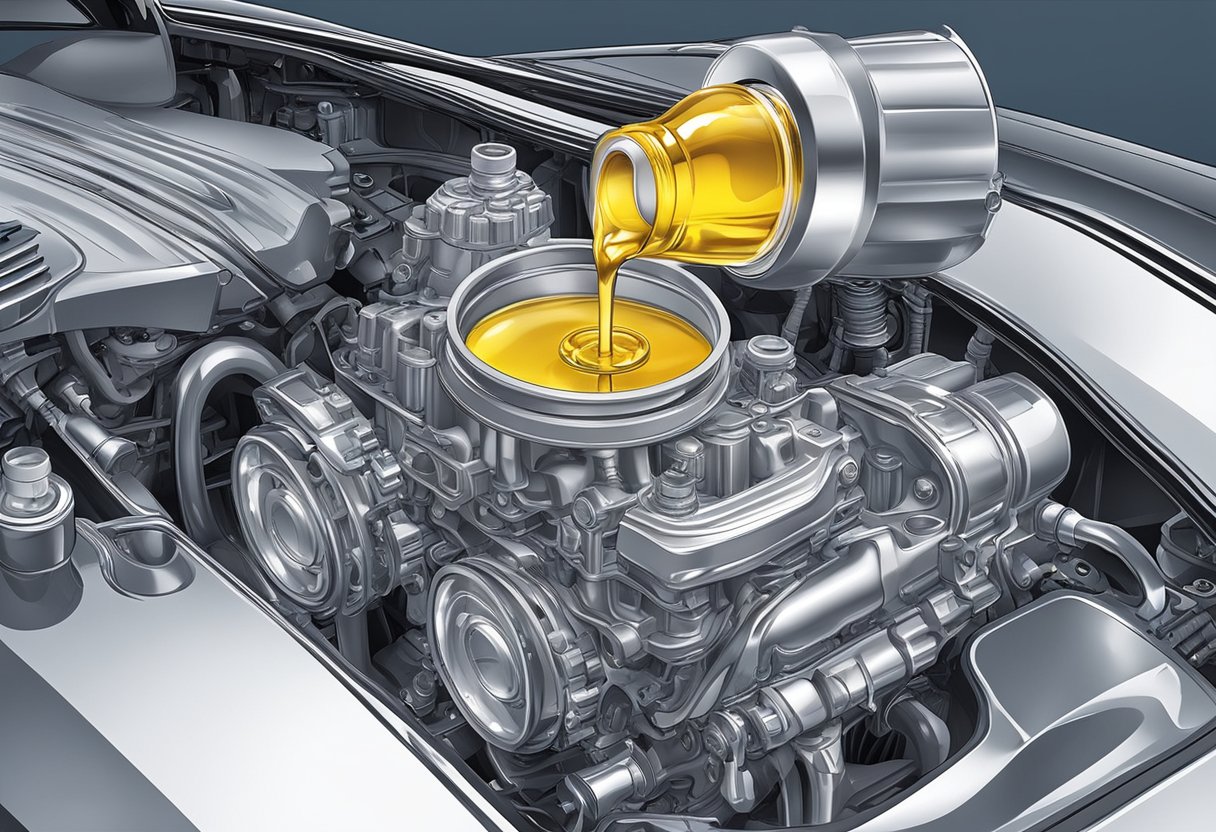
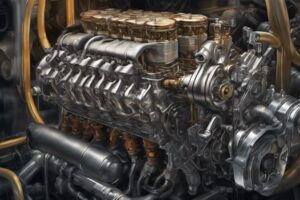
I noticed some white, milky substance on my dipstick during a routine checkup. Could this be water in my engine oil, and if so, how urgent is it that I address this issue?